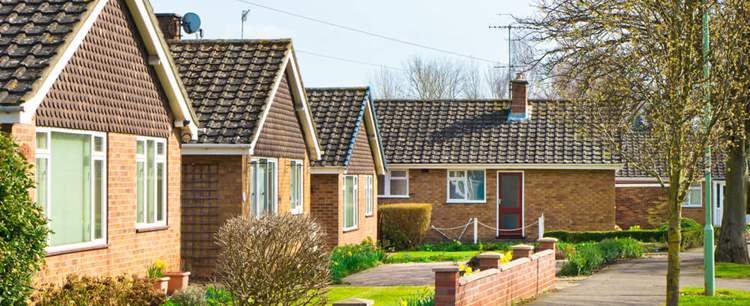Recent UK property news headlines cover a fairly wide spectrum of developments in the housing market.
There is a discussion about making the change from leasehold to freehold tenure, the price of property in your area against the backdrop of average prices falling across the country as a whole, the demand for rented accommodation in London and, the efforts made by landlords to adapt their properties for older tenants.
Will Leasehold Plans Make It Easier To Buy The Freehold?
A story in the Mail Online on the 30th of January asked whether government proposals for the reform of the relevant legislation will make it easier for leaseholders to buy out their landlord and become freeholders.
Under the latest proposals, it will be made considerably easier for leaseholders to buy the freehold of their home. In the case of those owning a home in a block of flats, this would also include the ease with which individual occupiers club together to purchase the freehold in which everyone can then take a share.
By making it easier for homeowners to buy the freehold, former leaseholders will then also avoid the prospect of rising ground rents and the prohibitively expensive management charges imposed by some freeholding landlords.
The proposals would also let existing leaseholders off the hook when it comes to paying for expensive remedial building work to remove hazardous cladding on blocks of flats – it is intended that landlords alone assume responsibility for funding such necessary measures.
Capital! Highest Rental Demand In The UK Found In London
If you are a landlord looking to invest in the area with the highest demand for rental accommodation, Landlord Today probably came up with the answer in a story on the 1st of February.
Its research revealed that the highest level of demand from tenants came in Central London, according to landlords who already own property in that part of the capital.
After falling out of favour among renters during the Covid pandemic, let property in Central London is once again steadily gaining ground to become the place with the highest rental demand by the end of 2022.
Other regions of the country where such demand is reported to be strong include the East of England, Wales, and the Northeast.
What’s The Average House Price In Your Area?
In its latest round-up of prices, the online listings website Zoopla on the 31st of January also published a searchable map which you can use to discover the average house price in any particular area of the country.
The report reveals that the average price of a house in the UK now stands at £261,200 after a 6.5% rise over the last year. But there are significant regional variations – with the West Midlands and the Northwest of England showing especially strong price rises.
In Wolverhampton, for example, the average house price is currently £175,400 – some 9.8% higher than this time last year. In Conwy, North Wales, the average house price is currently £217,300 – or 8.6% higher than a year ago. One outlier showing an especially strong increase in average prices is Wigan in the Northwest where the average price is £164,900 – an increase of 10.4% in the last year.
House Prices Fall For The Fifth Month In A Row
Beginning in the final quarter of 2022, average house prices across the UK have been steadily falling reported the BBC on the 1st of February.
January’s results showed that the current average house price is £258,297 – some 0.6% less than prices in December. The decline in prices is further illustrated by the fact that the growth in average prices for the 12 months ending in December was 2.8% but that the annual rate of increase was down to just 1.1% by the end of January.
The slump in the housing market is also matched by a falling off in the number of mortgage applications – down from 46,000 in November to 35,000 in December – reported the Nationwide building society.
Landlords Adapt Properties For Older Tenants
A story by Landlord News on the 25th of January revealed the welcome news that almost half (46%) of all private sector landlords are willing to adapt their buy to let properties to accommodate the needs of older tenants.
Recent research suggests that roughly a quarter (21%) of landlords would be prepared to invest up to £1,000 in such adaptations, 11% up to £3,000, and 5% of landlords prepared to invest as much as £5,000 or more – a mean average of £985 per dwelling.
This comes at a time when official statistics show a 70% increase over the past decade of households aged between 45 and 64 in the private rented sector and a 38% increase in those aged 65 and above.






